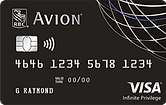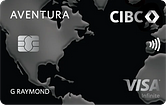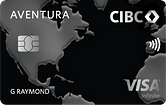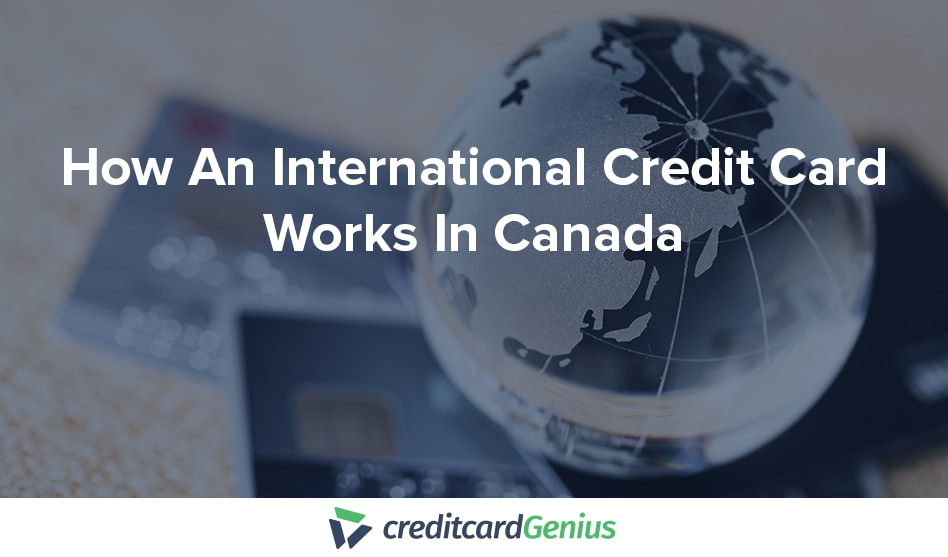Best Travel Credit Cards in Canada for 2026
An unbiased comparison of every top travel card in Canada
The American Express Cobalt Card is the best travel credit card in the country. In fact, it's the best overall credit card in Canada. Runners-up include the MBNA Rewards World Elite Mastercard and RBC Avion Visa Infinite Privilege, providing valuable non-Amex options.
| Credit card | Annual fee | Average return | Insurance coverage | FX fee | Welcome offer | |
|---|---|---|---|---|---|---|
| #1 | American Express Cobalt Card | $191.88 | 4.5% | 10 types | 2.5% |  $100 GeniusCash + Up to 15,000 bonus points (terms) $100 GeniusCash + Up to 15,000 bonus points (terms) |
| #2 | MBNA Rewards World Elite Mastercard | $120 | 2.86% | 12 types | 2.5% |  $20 GeniusCash + 30,000 bonus points (terms) $20 GeniusCash + 30,000 bonus points (terms) |
| #3 | RBC Avion Visa Infinite Privilege | $399 | 2.91% | 12 types | 2.5% | Up to 70,000 bonus points (terms) |
These 3 cards offer the best of the best for frequent travellers: high returns on travel purchases, comprehensive insurance, valuable travel perks (airport lounge access, hotel upgrades, etc.), and reasonable annual fees to balance it all out.
Using our data-driven analysis of all Canadian travel credit cards to rank cards for rewards, insurance, and more, the following article highlights all the details you need in order to choose the travel credit card that precisely fits your lifestyle and budget.
Key Takeaways
- The best travel credit card in Canada is the American Express Cobalt Card, followed by the MBNA Rewards World Elite Mastercard.
- Travel credit cards provide high returns, excellent insurance, and premium perks, but they may demand high annual fees and income requirements.
- The best travel credit card for you depends on your spending habits, your vacation habits, and your insurance needs.
The best travel credit cards in Canada
Our Gold award for the best travel card in Canada goes to the American Express Cobalt Card, largely thanks to its fantastic rewards return rates.
Our Silver award goes to the MBNA Rewards World Elite Mastercard. In addition to an average return of 2.86%, you’ll get up to 15k bonus points on your birthday.
And our Bronze award goes to the RBC Avion Visa Infinite Privilege, which features luxurious travel perks and offers a huge welcome bonus.
Our list prioritizes travel credit cards with high returns – but let’s not forget their other virtues. The best travel credit cards add even more value with travel insurance, premium perks like airport lounge access, and low foreign exchange fees for souvenir shopping.
Canada’s best travel credit card: American Express Cobalt Card
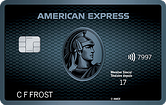

This credit card earns multiple awards per year, largely due to its average earn rate of 4.5%. Plus, the Amex Membership Rewards Program is one of the most flexible programs out there, with redemption options worth up to 2 cents per point (CPP).
Since it comes with travel perks like complimentary room upgrades, late check-outs, and a US$100 credit at properties in The Hotel Collection, the American Express Cobalt Card can really help reduce your vacation costs. Grab a couple of tickets to your favourite shows through Amex's Front of the Line program, or choose from the specially curated events and offers through Amex Experiences, to make your vacation the most fun, most valuable one yet.
And with 10 types of insurance, you can relax, knowing you're fully covered for just about any emergency that could occur while away from home, from a flight delay to theft of items from your hotel room.
Best travel card silver winner: MBNA Rewards World Elite Mastercard
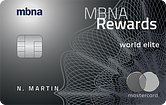
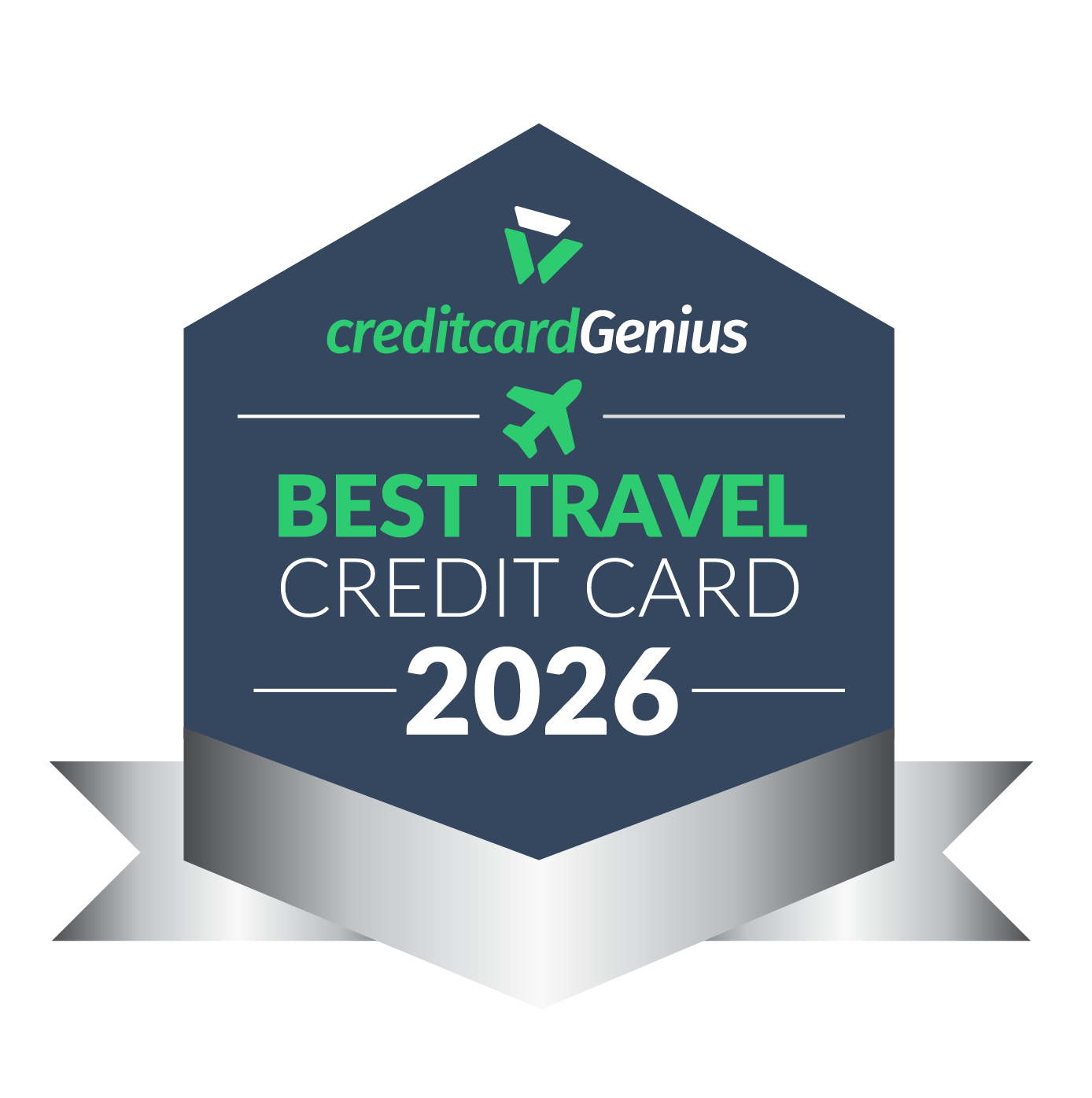
The MBNA Rewards World Elite Mastercard delivers up to five MBNA Rewards Points per $1 spent, making it an attractive option for everyone, especially Mastercard loyalists. Cardholders are rewarded with bonus points each year on their birthday, too – an extra 10%, based on what you earned throughout the past year.
As a World Elite Mastercard, this MBNA card offers amazing access to valuable travel perks, including complimentary concierge services, exclusive event tickets, and airport lounge access. Cardholders are offered a Dragonpass membership, which provides access to more than 1,400+ lounges in 800 airports around the world.
As a true travel card should, the MBNA Rewards World Elite Mastercard has a solid insurance package, too. The: 12 types even includes mobile device insurance, which is surprisingly rare.
Best travel card bronze winner: RBC Avion Visa Infinite Privilege

The RBC Avion Visa Infinite Privilege offers one of the most valuable welcome bonuses of any credit card, worth up to $1,631 when redeemed through Avion's Air Travel Redemption chart. Plus, the average earn rate for RBC's valuable Avion Rewards is an impressive 2.91%.
As a Visa Infinite Privilege cardholder, you’ll enjoy the exclusive benefits offered by the Visa Infinite Privilege program, like airport lounge access, complimentary luxury hotel upgrades, and opportunities to book exclusive events or restaurants.
The card also grants elite status at 60+ Sandman and Sutton Hotels, and you’ll have 24/7 access to free concierge services. Travellers will appreciate the VIP treatment they get when flying, and foodies will love the complimentary year of DoorDash access.
Compare all top travel credit cards by Genius Rating
Our Genius Rating system uses a refined, math-based algorithm to rank
- Rewards: 54%
- Fees: 13%
- Perks: 11%
- Insurance: 11%
- Interest: 5%
- Approval: 3%
- Acceptance: 3%
To select the top travel cards, we prioritized rewards to get you to your destination faster.
Return rate calculations are based on an average spend of $3,000 per month.
Here’s how the top 10 travel credit cards in Canada compare when arranged by Genius Rating:


How to choose the right travel credit card
The best travel cards offer strong travel rewards, extensive insurance, and additional travel perks.
When selecting the right card for you, be sure to factor in your unique lifestyle and preferences. Do you appreciate a good airport lounge? Choose a card with top airport lounge access. Are you planning to shop with your card abroad? You may prefer to focus on cards without foreign exchange fees.
When choosing the right credit card for you, consider the factors that determine a card’s Genius Rating: rewards, fees, approval, perks, insurance, interest, and acceptance.
Rewards
A credit card's average rate of return will give you a general idea of what you can expect to get back. In particular, though, you'll want to know the rate of return in your top spending areas and should choose a card with the best returns for those categories.
None of our top picks for travel cards offer less than 2% in average returns, but if you want the biggest bang for your buck, the American Express Cobalt Card's rate is an astonishing 4.5%.
The redemption value and opportunities are also important to consider. For instance, both the American Express Membership Rewards and Avion Rewards programs allow you to transfer your points to several other points programs, but MBNA Rewards doesn't offer this.
Not sure what your rewards are worth? Check out the creditcardGenius Rewards Points Calculator.
Tip: No matter what credit card you use, you could be earning bonus cash back on top of your card's rewards. Input your monthly spend in the GeniusCash app, and level up to earn real cash.
Fees
While it's true that nobody enjoys paying a big annual fee, it's also true that low- and no-fee cards typically offer fewer benefits (though not always). Here’s how much Canada’s best travel cards cost per year:
Note: In every province except Quebec, the MBNA Rewards World Elite Mastercard’s fee is charged in monthly installments.
If you’re looking for a no-fee travel card, check out our picks for Canada’s best no-fee travel credit cards.
You'll need to weigh which is more important for you: a low fee or more premium perks.
Sometimes, it’s not as cut and dry. For instance, you’ll pay a higher annual fee with the RBC Avion Visa Infinite Privilege, but the American Express Cobalt Card, which has a moderate annual fee, actually nets you more rewards.
To help you decide if a particular card with an annual fee is worth it, weigh the rewards, perks, and insurance it offers.
You should also check whether or not your preferred travel card charges foreign exchange and/or transaction fees, etc., and choose one with reasonable rates.
Perks
Credit card perks are another key consideration for choosing a travel credit card.
- Airport lounge access: Some travel credit cards offer complimentary access to airport lounges so you can relax in a quiet space and grab some food before your flight. Even cards that don’t offer free passes may give you access to networks like Priority Pass, which gets you lounge access for a fee regardless of ticket class.
- Concierge service: Some premium travel cards offer 24/7 complimentary concierge access to help you score event tickets, restaurant or hotel reservations, or access to unique travel experiences. Remember, of course, that while the service is free, you still have to pay for the tickets, meals, etc.
- Travel insurance: The best travel credit cards offer coverage for trip cancellations, lost baggage, medical emergencies (yes, even if you’re over the age of 65), and plenty more.
- No foreign transaction fees: Some travel cards waive the typical 2.5% FX fee when you make purchases outside of CAD. If you travel frequently and tend to use your credit card a lot while abroad, this perk could save you hundreds of dollars a year.
- Free checked bags and priority services: Most airline-branded cards include one free checked bag for the cardholder and others travelling on the same reservation. Some cards also offer priority services for boarding and security (at select airports) to make your travel experience smoother.
- Companion vouchers: Airline-branded cards may offer companion vouchers, usually after you spend a certain amount on the card. Sometimes the vouchers are free, and sometimes you’ll need to pay a set amount, but used right, they can save you a lot of money.
- Exclusive travel offers: Some cards will get you access to exclusive deals or early access to promotions – like discounted hotel stays – that may not be available to the public.
As always, more perks mean higher annual fees. After all, they’re luxuries, not must-haves.
Of Canada’s top 3 travel credit cards, the best card for perks is the RBC Avion Visa Infinite Privilege. While the American Express Cobalt Card offers Amex Front Of The Line, and the MBNA Rewards World Elite Mastercard includes sweet birthday bonus points, the RBC Avion Visa Infinite Privilege offers premium perks to offset its premium pricetag.
Learn how much your credit card benefits are worth.
Insurance
Most travel cards offer travel-related insurance coverage, but check to make sure you're getting the right coverage for your needs – especially if you're a senior.
When determining whether a card is worth its fee, consider the value of its insurance package. The RBC Avion Visa Infinite Privilege adds an extra $653 of estimated value in insurance alone, while other travel credit cards offer $400 – $450 worth of insurance.
Credit card insurance coverage can save you thousands of dollars on cancelled airline tickets, damaged merchandise, and even medical bills.
Interest rates
Especially if you tend to carry a balance, prioritize cards with lower interest rates. Many people just consider a card's purchase rate, but the cash advance and balance transfer rates can be just as important, depending on how you plan to use your credit card.
Travel cards aren't especially known for their low interest rates, but comparing them will still help. The RBC Avion Visa Infinite Privilege, for instance, has a slightly lower purchase rate than either the American Express Cobalt Card or MBNA Rewards World Elite Mastercard. And note that the American Express Cobalt Card doesn't have a balance transfer rate at all, so if you're considering doing a balance transfer, this card isn't your friend.
Approval
There's not much point in even applying for a card if you know you don't meet the eligibility criteria. Therefore, it's important to review the requirements of your desired card(s) before making the decision to apply.
There are more credit cards than you think that don't have any income requirements, including many American Express cards – and the American Express Cobalt Card is one of them. On the other hand, cards included in premium programs like Visa Infinite and World Elite Mastercard tend to have higher income criteria.
Credit score is important, too. The better your score, the better the odds of approval. While there are still valuable options for those with lower credit scores, you'll at least want to be aware of your score before submitting applications.
Acceptance
Nobody wants to get stuck trying to make a purchase with a credit card that isn't accepted by the retailer. It's frustrating and, sometimes, embarrassing.
American Express cards probably have much wider acceptance than you realize, but Visa and Mastercard have their limits too, especially if you're travelling abroad. Either way, knowing where and how you can use your card can help you avoid complications.
How travel credit cards work
Travel credit cards are a type of rewards credit card where points yield the most value when redeemed for travel, including airline tickets, hotel stays, and rental cars. Knowing the best ways to earn and redeem points is key to maximizing value.
How to earn rewards
Travel credit cards award points either at a low, flat rate (e.g., 1 point per $1 spent on anything) or at a high rate in a small number of spending categories (e.g., 5 points per $1 spent on gas and groceries only).
If your shopping habits are all over the place, you’ll get the most use out of a flat rate card like the RBC Avion Visa Infinite Privilege. If you spend most of your money on groceries and restaurants, the American Express Cobalt Card or MBNA Rewards World Elite Mastercard will be a better fit.
Whatever you do, make sure your transactions count toward your rewards by verifying their merchant category codes.
How to redeem rewards
Once you’ve accumulated enough points, it’s time to get your tickets, reserve that room, book that car, or whatever the case may be. But not all rewards are created equal.
Generally, the most valuable travel rewards are accessed through your credit card issuer’s official travel portal. Aeroplan users book through Air Canada, TD Rewards collectors use Expedia For TD, and so on.
In other cases, like the Amex Membership Rewards program, the best travel rewards lie in points conversions to other loyalty programs like Aeroplan, Hilton Honors, or Marriott Bonvoy.
Pros and cons of travel credit cards
Travel credit cards can get you to your destination faster (and in comfort) with features such as:
- Exclusive event and experience ticket offers
- Generous travel insurance packages
- High return rates in limited spending categories
- Partner discounts
- Preferential pricing on airline tickets, car rentals, cruises, vacation packages, and more
- Large welcome bonuses
- Luxury concierge, airline, hotel, and resort perks
But none of these things are truly free. The most rewarding travel credit cards all have a catch, including but not limited to:
- Airline, seat, and travel date restrictions on reward flights
- High annual fees
- High income requirements
- Low returns in most spending categories
- Low value on non-travel rewards
- Ticket pricing based on demand
Ultimately, travel credit cards favour modest spenders who need help saving for their next vacation. If you’re particularly thrifty, pick a cash back credit card instead. If you have no trouble travelling well and often, consider a perks and benefits card for the most luxurious experience.
FAQ
What is the best travel credit card to get right now?
The American Express Cobalt Card is currently the best travel credit card in Canada. Not only does it offer the highest rate of return, but it also includes a comprehensive insurance package, hotel credits, and Amex benefits.
Which Canadian credit card has the best rewards?
The American Express Cobalt Card is the best rewards credit card in Canada, along with being the best travel card. Users can earn and redeem American Express Membership Rewards points at an average 4.5% rate of return.
Who offers the best travel card?
American Express offers the best travel card, the American Express Cobalt Card. The 4.5% American Express Membership Rewards earn rate is very high, the card has an extensive insurance package, and it has a reasonable monthly fee.
What are the downsides of travel credit cards?
Unfortunately, travel credit cards still face restrictions regarding airlines, seat assignments, and travel dates when booking flights with rewards points. Travel cards also tend to place low value on non-travel-related redemption categories, which is disappointing for infrequent travellers.
Which bank credit card is best for travelling?
There’s no single bank that issues all the top credit cards. Instead, RBC, MBNA, Scotiabank, BMO, and TD each offer their own competitive travel cards, all very valuable, particularly for if you’re a current customer with one of them.
Is getting a travel credit card worth it?
Travel cards can be very valuable for frequent flyers and vacationers, and for those who appreciate benefits like concierge service and airport upgrades. If you don't travel much, though, cash back and/or low interest cards are better options.
Which credit card is best for travel protection?
We named the RBC Avion Visa Infinite Privilege the best travel credit card for travel insurance since it includes 12 types of coverage, including a full week of rare medical coverage for those over age 65.
Editorial Disclaimer: The content here reflects the author's opinion alone. No bank, credit card issuer, rewards program, or other entity has reviewed, approved, or endorsed this content. For complete and updated product information please visit the product issuer's website. Our credit card scores and rankings are based on our Rating Methodology that takes into account 126+ features for each of 228 Canadian credit cards.



 ×9 Award winner
×9 Award winner 

